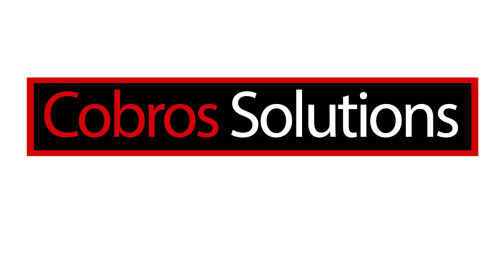Best Bankruptcy Lawyers in Dominican Republic
Share your needs with us, get contacted by law firms.
Free. Takes 2 min.
Or refine your search by selecting a city:
List of the best lawyers in Dominican Republic
About Bankruptcy Law in Dominican Republic
Bankruptcy in the Dominican Republic is governed by laws designed to provide debt relief and financial restructuring solutions for individuals and businesses struggling with financial insolvency. This legal mechanism allows debtors to either liquidate their assets to pay off creditors or reorganize their debts to continue operating. The processes and options available under Dominican bankruptcy law can provide the necessary legal framework for both debtors and creditors to reach satisfactory solutions, in accordance with established legal standards.
Why You May Need a Lawyer
Navigating the complexities of bankruptcy can be challenging without professional guidance. Here are common situations where legal assistance is key:
- Filing for bankruptcy requires a thorough understanding of legal procedures and paperwork.
- Protection of assets from creditors needs strategic legal planning.
- Negotiating debt restructuring with multiple creditors can be complex without expert negotiation skills.
- Ensuring compliance with all legal obligations during bankruptcy proceedings demands professional oversight.
- Debtors and creditors may face litigation involving fraudulent transactions or violations of bankruptcy stay laws.
Local Laws Overview
The Dominican Bankruptcy Law encompasses several key aspects:
- The bankruptcy framework is articulated under Law No. 141-15, which establishes comprehensive procedures for handling financial insolvency.
- There are provisions for both liquidation (when a debtor’s assets are sold to pay off debts) and reorganization (where debt obligations are restructured to allow continued operation).
- The law prioritizes certain debts, setting a hierarchical framework for debt repayment.
- Legal stay on claims enforcement exists to allow debt restructuring processes to proceed without creditor interference.
- Creditors’ committees may be established to negotiate restructuring agreements with debtors.
Frequently Asked Questions
What is the process for filing bankruptcy in the Dominican Republic?
To file for bankruptcy in the Dominican Republic, one must submit a bankruptcy petition to the appropriate court, detailing all assets, liabilities, income, and filing for either liquidation or reorganization.
What are the types of bankruptcy available?
The two primary types are liquidation, where assets are sold off to satisfy debts, and reorganization, providing restructuring of debts to permit the debtor’s business to continue.
Can individual debtors file for bankruptcy?
Yes, both individuals and businesses can seek bankruptcy protection under Dominican law.
How long does the bankruptcy process usually take?
The duration varies widely, depending on the complexity of the case and whether it involves liquidation or reorganization, but it can range from several months to a few years.
Are there alternatives to bankruptcy?
Debt negotiation or informal reorganization agreements with creditors can often serve as alternatives to bankruptcy.
What debts cannot be discharged in bankruptcy?
Certain debts, such as child support, alimony, and fraudulent debts, typically cannot be discharged under bankruptcy law.
What happens to my personal assets in bankruptcy?
This depends on the type of bankruptcy filed; in liquidation, most assets may be sold, while reorganization may allow retaining assets subject to negotiation.
How does bankruptcy affect my credit report?
Filing for bankruptcy usually has a negative impact on your credit rating and can remain on your credit report for several years.
Will all my debts be cleared after bankruptcy?
Not necessarily; some debts may be restructured rather than discharged, and not all debts are dischargeable under the law.
Can I choose which debts to include in bankruptcy?
No, all liabilities must be declared during bankruptcy proceedings for transparency and legal compliance.
Additional Resources
For in-depth guidance, consider reaching out to the following resources:
- General Directorate of Internal Revenue (Dirección General de Impuestos Internos - DGII): Provides important tax-related information and support during bankruptcy.
- Superintendency of Banks of the Dominican Republic: Offers assistance and advice concerning financial institutions affected by bankruptcy.
- Bar Association of the Dominican Republic (Colegio de Abogados de la República Dominicana): Offers a directory of qualified lawyers specialized in bankruptcy law.
- Local legal aid organizations: Many non-profits provide legal assistance to those unable to afford a lawyer.
Next Steps
If you require legal assistance with bankruptcy, consider the following steps:
- Conduct thorough personal research to understand your financial situation and options available.
- Reach out to a qualified lawyer specialized in bankruptcy law for initial consultation and assessment.
- Collect and organize all relevant financial documentation, including income, expenses, debts, and assets.
- Explore alternative dispute resolution options with creditors, such as debt negotiation or informal restructuring agreements.
- Prepare for bankruptcy proceedings as advised, if no viable alternative solution is possible.
Lawzana helps you find the best lawyers and law firms in Dominican Republic through a curated and pre-screened list of qualified legal professionals. Our platform offers rankings and detailed profiles of attorneys and law firms, allowing you to compare based on practice areas, including Bankruptcy, experience, and client feedback.
Each profile includes a description of the firm's areas of practice, client reviews, team members and partners, year of establishment, spoken languages, office locations, contact information, social media presence, and any published articles or resources. Most firms on our platform speak English and are experienced in both local and international legal matters.
Get a quote from top-rated law firms in Dominican Republic — quickly, securely, and without unnecessary hassle.
Disclaimer:
The information provided on this page is for general informational purposes only and does not constitute legal advice. While we strive to ensure the accuracy and relevance of the content, legal information may change over time, and interpretations of the law can vary. You should always consult with a qualified legal professional for advice specific to your situation.
We disclaim all liability for actions taken or not taken based on the content of this page. If you believe any information is incorrect or outdated, please contact us, and we will review and update it where appropriate.
Browse bankruptcy law firms by city in Dominican Republic
Refine your search by selecting a city.













